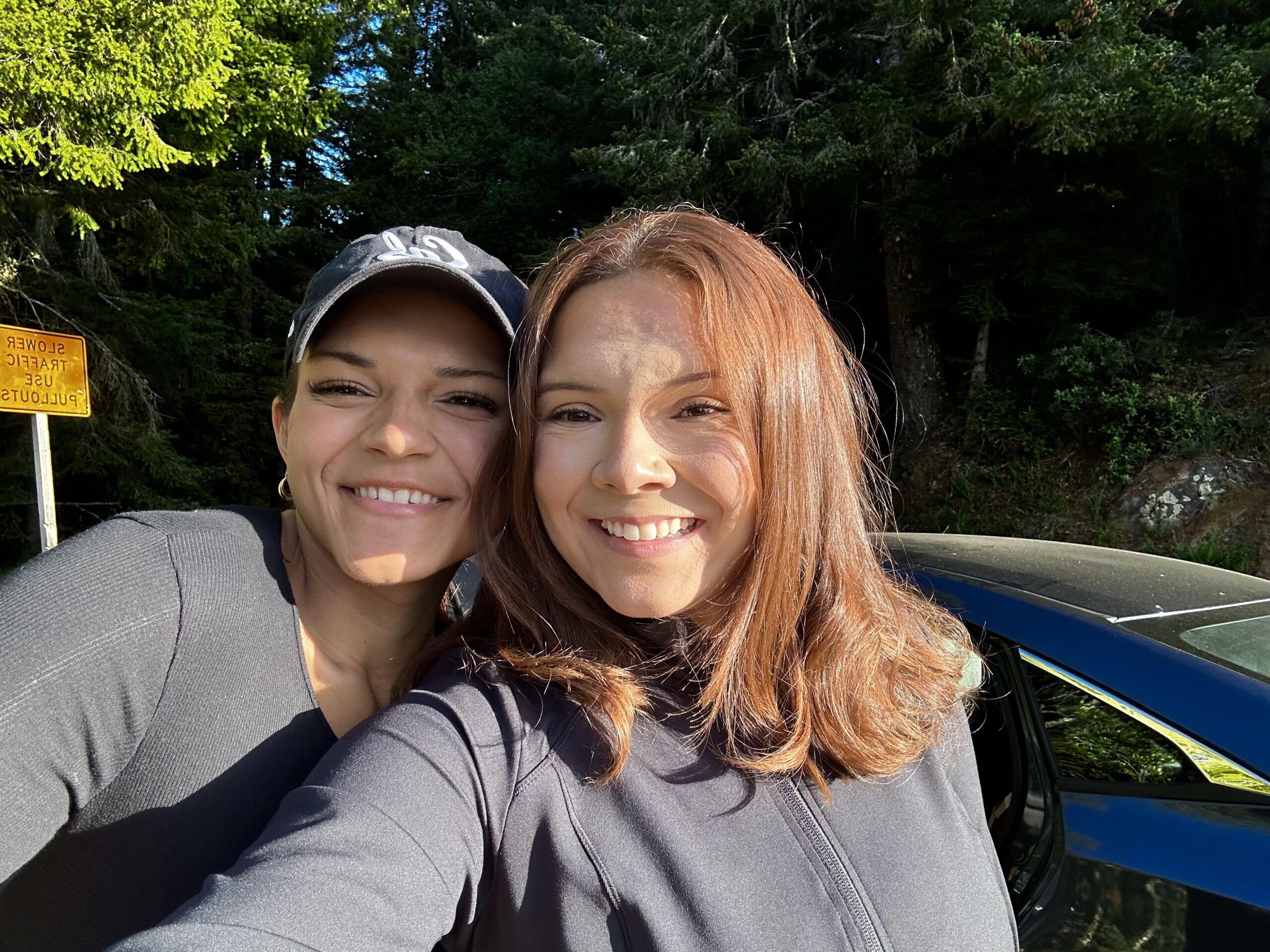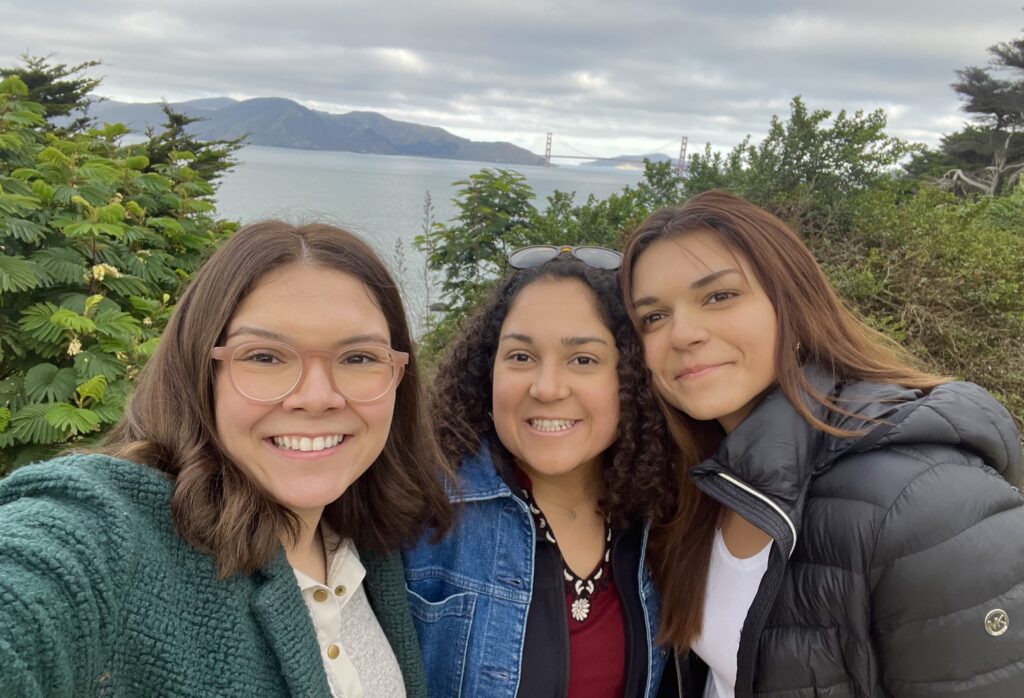Her sisters — and growing up working class in Sacramento — inspired this student to push for climate justice
Transfer student Sam Ward followed her sister to UC Berkeley. With different academic approaches, they’re both using their education to advance public health.

Courtesy of Sam Ward
August 26, 2025
This “I’m a Berkeleyan” was written as a first-person narrative in collaboration with Sam Ward, a transfer student majoring in society and environment who’s returning for her second year on campus. A Regent’s and Chancellor’s scholar, Ward followed her older sister Alex to Berkeley, and both sisters share a passion for improving public health for marginalized communities, like the neighborhood where they grew up in Sacramento.
I really credit my sisters for helping me get to where I am today. I have two older sisters, Lauren and Alex. We’re all transfer students and went to the same community college. Lauren went on to UC Davis and is now pursuing her Ph.D. at Stanford, and Alex transferred to Berkeley and is now working as a research coordinator at Stanford Medicine. When I got into Berkeley too, I was overjoyed — it felt like a full-circle moment for all of us.
We’ve always been close. We went through a lot growing up, and I truly can’t imagine a life without them. We uplift each other. I wouldn’t have made it to Berkeley without their support — emotionally, academically and even logistically. Alex literally passed me the keys to her old apartment when I transferred.
After high school, I went straight into the workforce, working full-time as a home healthcare aide for disabled youth while attending community college. While balancing both school and education was difficult, it was there I learned what it really meant to show up for people: to advocate for those who are often overlooked, to meet others with compassion and to carry responsibility beyond myself. It was then that I started to connect the dots between individual care and broader structural change. This experience didn’t just push me toward higher education — it gave me a purpose.
When you don’t have access to certain resources or guidance, it’s hard to imagine what’s possible. But when you have people championing you onwards, like my sisters, the path forward starts to become clearer.
That path eventually led me to UC Berkeley — and to the Navigating the University of California, Berkeley program (NAVCAL), which made a huge difference in my transition to Cal. Being a woman of color from a nontraditional background, it’s easy to feel out of place. But NAVCAL gave me a sense of belonging. Every time I talk about it I smile, because it reminds me that people like me do belong here.
As a junior transfer student I often felt behind, like everyone else already knew the system, the shortcuts, the culture. At first I tried to hide the fact that I was a transfer. But eventually I realized this is part of who I am. I started to see it as something that made me stronger, that my and others’ experiences make us unique. Now, I’m proud to say I’m a first-generation transfer student. I’m proud of how far I’ve come.

Courtesy of Sam Ward
Academically, I always joke that I’m the middle ground between my sisters: Alex studied sociology, Lauren studies ecology and I study society and environment. I focus on how climate change is impacting California ecosystems and different sectors of society. I look at how the legal system can be shaped to improve places such as where we came from. I approach my work through a legislative lens, while Alex focuses more on healthcare systems and addressing disparities across social groups. Lauren takes on a more biological lens, and is researching species’ interactions with their ecosystem.
I’d say all of our experiences, though in different disciplines, are deeply connected by our shared commitment to public and environmental health, with each of us working in our own way to create systems that are more just, sustainable and ultimately responsive to the community we come from.
Growing up, we all saw firsthand how the lack of access to green spaces, clean air and basic infrastructure affected public health. We grew up in a dense, urban environment — what I call an “urban playground” — with very little access to nature. Sometimes, we’d go on trips to national parks with our grandmother. Nature became a kind of escape, a refuge from the chaos of city life.
Looking ahead, I see my work bringing me back to Sacramento. I want to help address the city’s need for public transportation and more inclusive and widespread green spaces. Sacramento struggles with the “urban heat island effect,” a climate justice issue that can disproportionately impact low-income communities. I want to be part of the solution. I want to help the city I love and grew up in thrive.